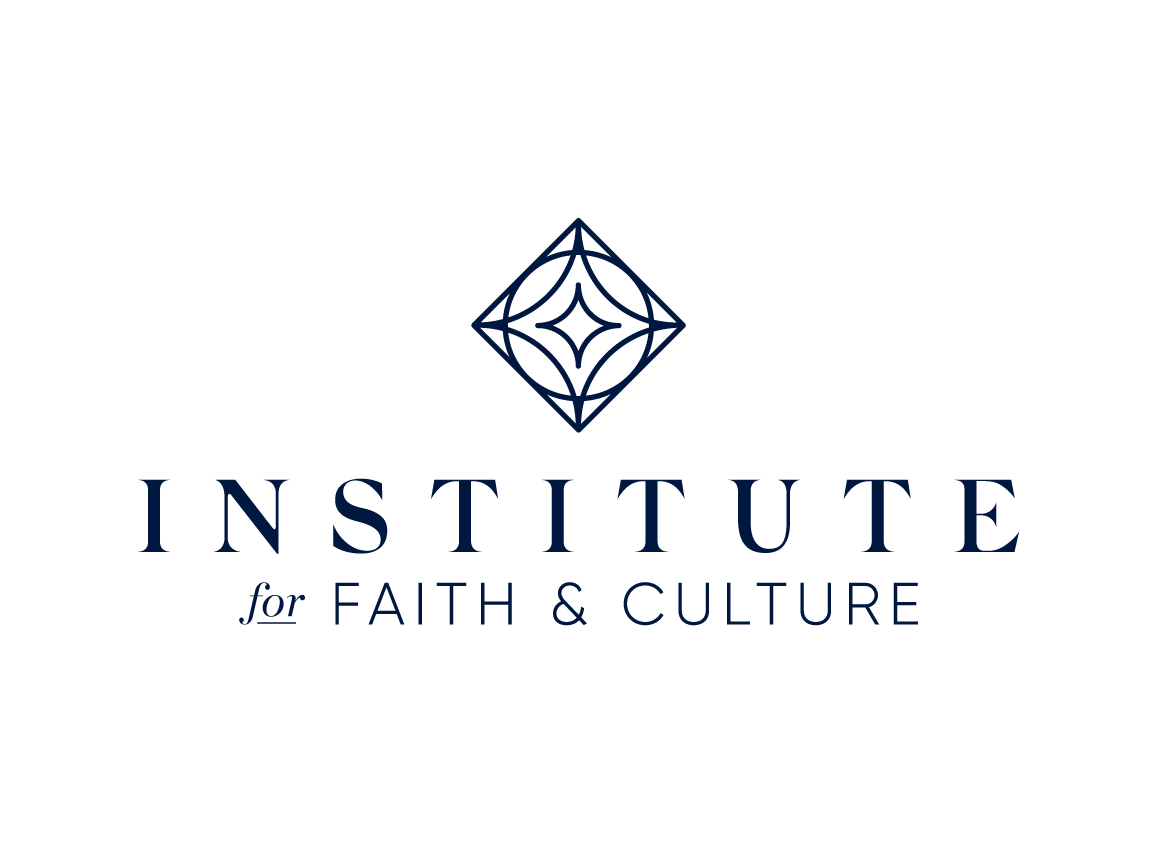We challenge “neutral” or “middle-ground” definitions of human life
Made in the image and likeness of God, we have an inherent sensory conception of what it means to be human and have dignity, which means that we frequently project our “ideal human” onto others, knowingly or unknowingly. We seek to make the world in our own image, often suppressing God’s image and recognition of his enabling grace from springing forth.[5]
This propensity is deeply intertwined in our psyches. We gravitate toward imaged people who are similar to us. The more shared features, stories, and experiences the higher dignity-level we attribute to them. However, a holistic understanding of what it means to be human confirms that our ideas should not overshadow the people we are encountering. Instead, our identification of value should be enlightened and guided by God’s definition. This places a challenge directly before the church: does our church reflect the creative diversity of God by reflecting the composition of its local communities?
We are constrained
We are born into a life position that we can neither predict nor choose, with a background that shapes us and that we can neither fully adopt nor reject. To put this another way, family, wealth, disability, joy, loss, and limitation are wrapped up in our human experience. These conditions cannot be changed by relabeling or rejecting the traditional worldview. Rather, we must see that we are interwoven into a larger historical movement. John Murray writes, “A theology that does not build upon the past ignores our debt to history and naively overlooks the fact that the present is conditioned by history. A theology that relies upon the past evades the demands of the present.”[6]
We exist as part of a larger history with a bright future, but our knowledge of the past and future is limited. Instead of trying to become “ahistorical”—above or beyond history, we need to commit to working within our conditions and learning to “pursue godliness with contentment” (1 Tim. 6:6-7). Thus, we are consistently seeking to live well in our conditions, even with the knowledge that progress comes with partial outcomes and will only be obtained through the grace and truth of Jesus.
Let us consider this example: conversations surrounding self-perception and body image. Frequently we encounter struggles with self-worth and comparison that seem to emphasize a very biblical idea: that of sensing our inadequacy in a vast world of possibility. There is a sense of very healthy realism here, yet, the conversation cannot stop with just this personal assessment. Our perspective necessitates a face-to-face encounter with God’s creative intention, which both encourages and challenges us. In Psalm 8:4-5, David writes, “… what is man that you are mindful of him, and the son of man that you care for him?” (ESV) We genuinely wonder why God is involved with us at all, given our dissatisfaction with ourselves and our recurring problems. This is a biblical perspective. David continues, “Yet you have made him [humans] a little lower than the heavenly beings and crowned him with glory and honor.” (ESV) God has instilled us with “glory and honor,” similar attributes to his own.
This Psalm illustrates how God intentionally made us with worth and purpose and this value originates from God, not our own repetitious self-talk, self-love, self-work, self-awareness, or self-expression (Col. 2:1-15). God’s created purpose pushes us to step beyond our limited imagination by not just coming to terms with our inadequacy (realism) but holding firm to the value God personally places on us (God’s redemptive work on our behalf, his presence within us, and promise of a hope-filled future).
The past or present may be outside our control and not aligned with the ideal. Still, the Lord has placed us in his chosen life space, and we will bear the weight of struggles that we did not choose, which may constitute life-long challenges. Rooted in Jesus, we confess that we have wanted to define ourselves, taken on struggles, and devised solutions on our own terms – we have not wanted to see ourselves as God sees us. Viewing our circumstances from the Lord’s vantage point enables us to value what he values – both the blessings of embodiment and the strength to seek change, even personal improvement, without disparaging what he has given and sustains.
We distinguish between human failure and human worth
A common theme from beginning to end of Scripture is humanity’s falling short in pleasing God in word, thought, or deed (whether personally or communally). Human failure—even as descendants of God who have the Holy Spirit dwelling within them, is not only entirely possible, but frequently occurring. This persistent infatuation with sin represents the pinnacle of human failure as it disregards the authority and kingship of God and breaks our communion with him. This raises the question, “How can humans exist in the image and likeness of God as sinners?”
We begin by distinguishing between the notion of human failure (an “ethical” category”) and human worth (a “metaphysical” category). Cornelius Van Til puts it this way, “Sin is therefore breaking loose from God ethically and not metaphysically… Metaphysically speaking then, both parties, believers and unbelievers, have all things in common; they have God in common, they have every fact in the universe in common. And they know they have them in common.”[7] Having been made in God’s image and likeness, we will continue to exist as creatures of image and likeness. Metaphysically, this means that we will always be reflective of our Maker and maintain an absolute standard of human worth. We will sin and tarnish our relationship to God, others, and our view of ourselves (we are fully responsible for all these transgressions) but this constitutes an ethical departure from his will, not a breaking away from him in terms of value.
Why does this matter? Because a new generation is being raised who does not clearly see the difference between ethics and metaphysics. Instead, they deprecate their own person or dismiss the truth of Scripture when traditional ways of speaking about sin and the human condition are addressed. For example, needing to receive Jesus’ redemption and “having nothing” and “being nothing” and “giving nothing” are messages that illustrate a linguistic ambiguity between the young and old. Our communication may be rooted in Scripture, but Jesus’ love is not in spite of our worthlessness, it is because of our human neediness. We deserve nothing from God—this is true, but we are his errant creation needing correction. We have worth, even in our neediness. This is vital to differentiate in the training of our next generation of Christian leaders because Scripture’s emphasis on lineage illumines both God as Father (connection, dignity) and Savior (need, dependence). In the words of B.B. Warfield, “The image of God is deeper than sin and cannot be eradicated by sin (Gen. 5:3; 9:6; 1 Cor. 11:7; Heb.2:5).”[8]
We challenge ideas of “justice” that conflict with valuing lineage
Justice is the governor of relationships – the parameters that guide, define health, and cast a vision for safe growth in community. For this reason, defining humanity directly intersects with the ethic of justice because justice is not only characterized by the notion of you living in a community, but a community with you in it.
To circle back to where we started, abortion and pregnancy is, at the core, about several parties intersecting in their interests (mother, child, father, wider community). Those interests may align or be in conflict, but the issue of justice emerges when one party is the recipient of harm. If the issue was a matter of freedom, then others would not and could not be negatively impacted. What is difficult for the American mindset is reforming its conception of freedom: to place independence within the framework of justice, not the other way around. When freedom is built on the foundation of justice, then we are looking out for another person’s wellbeing – both today, tomorrow, and twenty-five years from now (mother, child, father, wider community).
If the recognition can be made that human life is at stake in abortion, then the role of justice can be deliberated. If you deny the humanity of a child in utero, you strip all biblical teachings of justice from your argumentation. Grounded in God’s design of lineage, you cannot claim to be on the side of justice if you deny the presence of a human who is and will more fully be. Justice governs relationships, and abortion does not strengthen the relationships among societal members, it cuts them off. Abortion lacks a definition for humanity that is biblical, a commitment to community, and the preservation of future generations.
Biblical justice only stands on your side when you seek counsel from God. Life is defined by the Creator who shapes both life and relationships, something too great for us to fabricate. Life should be cared for in the fear of God’s sovereignty – he reigns, creates, sustains, and completes. When we deliberate over an idea or policy that impacts any of those life stages, we should be very careful. The church must be ready to guard life and simultaneously to foster its flourishing for the long-haul, grounded in the truth of God’s Word.
We challenge short-term ethical thinking
From conception to crime and relationship to power, decisions are made that put our ethics to the test. In the present, defining humanity in our own image and likeness can bring about significant benefits to ourselves, even if to the desecration of others, and we must be aware of our tendency to reject our own human fragility and make decisions that we are not qualified to make.
Our short-term thinking should be governed by long-term principles. In the rush of the present, stop and think about how your relationship to God intersects with those around you.
- Would others see that I view myself as created in God’s image, cherishing his gift of life and physical embodiment, not disparaging it?
- Are my daily priorities focused on building healthy relationships or are people overshadowed by the tasks I want to complete?
- Is my behavior (actions, words) positively contributing towards the growth and dignity of those around me, or do I consider some people valuable and others expendable?
- Do my decisions help to build a stronger community grounded in biblical truth, or am I projecting my own desires onto those around me?
- How does my behavior or decision impact another person’s present and future wellbeing?
We need to see God’s perspective more in our daily life as his children. We are connected to the Maker of humanity which has large implications for how we view ourselves and how we value others. We ought to define in likeness to God’s speech, to advocate that which God champions, and to love in the way God discerns as healthy. We need God’s saving from defining humanity in our own image each and every day.










